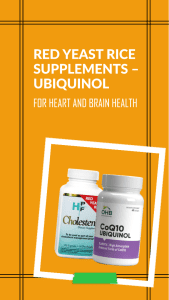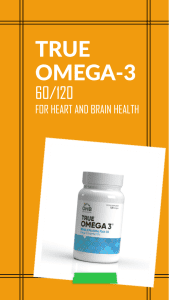
Share
Welcome, heart health friends! At Optimal Health Bridge, we love helping people live healthy lives by learning how supplements, food, and good habits work together. Today, we’re talking about your amazing heart—and how fish oil might affect it.
You’ve probably heard that fish oil is great for the heart. But did you know some studies say it might raise your risk of Atrial Fibrillation (AFib)? That might sound confusing, so let’s take a closer look.
What Is Atrial Fibrillation (AFib)?
Let’s start with what AFib actually is. AFib is short for Atrial Fibrillation. It’s a type of irregular heartbeat. The top chambers of the heart (called atria) beat out of rhythm with the bottom parts (called ventricles). This can lead to poor blood flow and make your heart work harder than it should.
Common Symptoms of AFib:
- Fast or fluttering heartbeat
- Feeling tired all the time
- Shortness of breath
- Dizziness or lightheadedness
- Chest pain or pressure
AFib can be mild for some people, but serious for others. It can raise the risk of stroke and heart disease, so it’s important to know your risks.
Top 10 Risk Factors for AFib:
- Being over 65
- High blood pressure
- Heart disease
- Being overweight
- Diabetes
- Drinking too much alcohol
- Sleep apnea
- Thyroid problems
- Smoking
- A family history of AFib
It’s better to try and prevent AFib than to treat it later. So understanding what helps or hurts your heart really matters.
What’s in Fish Oil?
Fish oil comes from the fat of fish like salmon, sardines, and mackerel. These fish are full of healthy fats called omega-3s.
Main Ingredients in Fish Oil:
- EPA (Eicosapentaenoic Acid)
- DHA (Docosahexaenoic Acid)
- Omega-3 fatty acids (also called PUFAs)
Why Do People Take Fish Oil?
- To lower triglycerides (a type of fat in the blood)
- To reduce inflammation
- To support brain health
- To help with mood and focus
- To protect eye health
- To support blood vessel function
- To ease joint pain
- To improve skin
- To boost the immune system
- To support healthy development in babies and during pregnancy
So it’s no surprise fish oil is one of the most popular supplements around!
Fish Oil and Your Heart: The Good Stuff
Fish oil is often called a heart helper. There’s a good reason—many studies show benefits for heart health.
7 Heart Benefits of Fish Oil:
- Lowers triglyceride levels
- Can lower blood pressure
- Reduces inflammation in blood vessels
- Improves how blood vessels work
- Might help prevent dangerous heart rhythms
- Offers protection after heart surgery
- Helps blood clot properly
So if that’s true, what’s the deal with AFib risk?
The Fishy Part: Does Fish Oil Increase the Risk of AFib?
Here’s where it gets tricky. A few studies found that high doses of fish oil might raise the risk of AFib. Let’s take a look at both sides.
Studies That Show Higher AFib Risk:
- VITAL Rhythm Study – More cases of AFib were seen in people taking more omega-3s.
- REDUCE-IT Trial – High dose EPA helped with heart health, but also had more AFib cases.
- OMEMI Trial – Older adults taking omega-3s showed a higher AFib rate.
Studies That Show Low or No Risk:
- GISSI-Prevenzione Trial – Found fewer sudden heart deaths in people taking fish oil.
- Alpha Omega Trial – Found no extra AFib risk in people who already had heart problems.
- European Society of Cardiology Review – Found that low doses of fish oil might protect the heart, but very high doses could increase risk.
So what’s going on? Why do some studies say fish oil is good, and others say it could raise AFib risk?
What Factors Affect the AFib Risk?
It turns out, there are many things that can change study results. It depends on who’s taking the fish oil, how much, and what kind.
10 Things That Matter:
- Dosage: Very high doses (more than 2 grams per day) may carry more risk.
- Form: Some supplements have only EPA, while others have both EPA and DHA.
- Purity: Prescription fish oils are tested better than store-bought versions.
- Age: Older adults seem to have higher AFib risk.
- Health Conditions: Your heart health before starting matters a lot.
- How Long You Take It: Short vs. long use gives different results.
- Freshness: Oxidized (spoiled) oils may cause other problems.
- Your Body: Everyone absorbs omega-3s a little differently.
- Other Medications: Fish oil can interact with other drugs.
- Your Diet: If you already eat fish, extra supplements may not help as much.
So not all fish oil—and not all people—are the same.
How Fish Oil Might Affect Heart Rhythm
Experts think there are a few ways fish oil might raise or lower the risk of AFib. Here are the top ideas:
3 Possible Reasons Fish Oil Might Cause AFib:
- Changes in Heart Cells: Omega-3s affect the way heart cells send electrical signals.
- Too Much EPA: Very high doses of EPA alone could disturb your heart’s normal pattern.
- Imbalanced Omega-3s: Having a lot more EPA than DHA might mess with your heart’s rhythm.
Think of your heart like a band. Omega-3s help the music play smoothly. But if one instrument gets too loud (like too much EPA), the tune might go off track.
Should You Stop Taking Fish Oil?
No, not unless your doctor tells you to. Fish oil can still be helpful—you just need to be smart about how you use it.
At Optimal Health Bridge, we offer clean, pure omega-3 supplements. They're tested for quality and give you the right mix of EPA and DHA—no gross fishy burps!
Smart Ways to Use Omega-3s:
- Talk to your doctor—especially if you have AFib or heart problems.
- Pick trusted brands that do third-party testing.
- Avoid very high doses unless your doctor recommends them.
- Look for a good balance between EPA and DHA.
- Eat a heart-healthy diet with your supplements.
- Pay attention to how your body feels.
- Be consistent—don’t skip or overdo doses.
- Choose fish oil in triglyceride form—it absorbs better.
- Keep it in a cool, dark place to stop it from going










